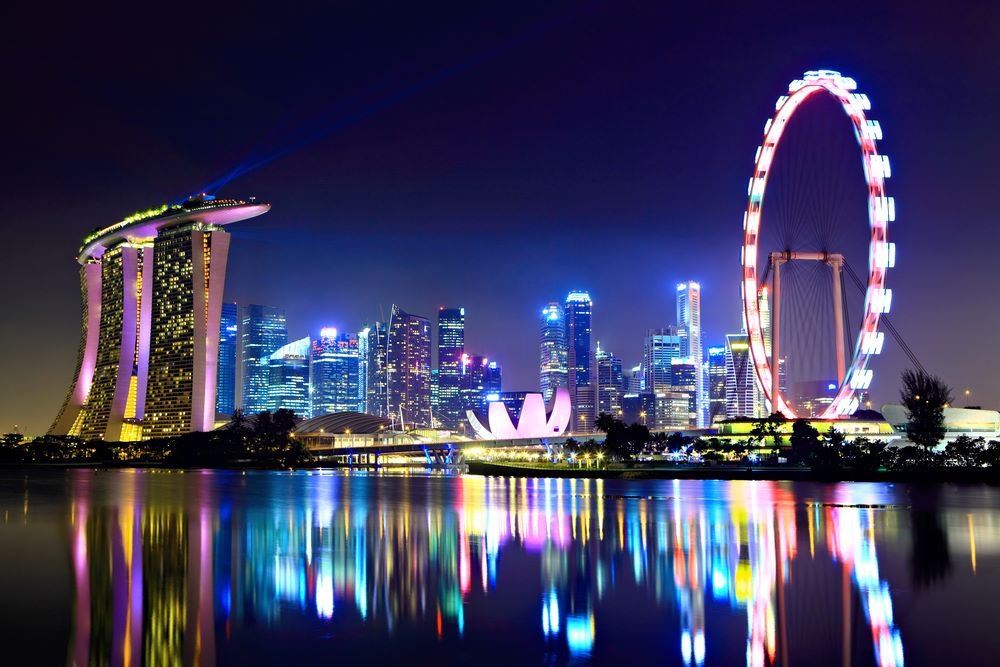
In the past two decades, Singapore has rendered itself as one of Southeast Asia’s most modern and dynamic cities. Blending a mass of different cultures, cuisines and architectural styles has led to cutting-edge tourist developments. The city throbs with life, from unparalleled city planning to its breathtaking superiority in all things, Singapore has undoubtedly earned the title of the “World’s Greatest City”.

Name any country of the world and its influences all flow through daily life in Singapore. The country still holds a strong reputation for its cleanliness and safety protocols. Also, the level of severe crimes is pretty low. The fine cultural mix has left it with a genuinely world-class destination to tour, study and settle.
Singapore is a premier education hub in Asia. Singapore offers a diverse and distinctive education that caters to studies with a global perspective to equip its students to withstand any competition. International candidates who strive to study abroad in Singapore will have a life changing experience of a lifetime while laying a promising groundwork for the future in their respective fields. Higher professional education in Singapore is known for its quality and safety with its leading universities also being among the top universities in the world.
The cost of Study in Singapore is comparatively low than most sought after countries like USA, Australia, UK, New Zealand or Canada. On the other hand, the cost of living varies from person to person. Any decent living would cost you as below approximately:
Most expensive is going to be accommodation
(Shared Room 500 SGD) (Personal Room 800 SGD–1000 SGD)
The closer you get to the city center, it will get more expensive. Institution’s accommodations are always cheaper than renting a single occupancy room.
Apparently, there are a lot of places one can visit in Singapore over his/her lifetime, but we are listing here a few that should not be missed if you have an opportunity. Singapore offers spectacular shoreline beaches and gardens. Namely, Marina Bay Sands and Gardens by the Bay respectively. Singapore Zoo is the world’s best rainforest zoo. The Orchard Road is a great place for a shopping spree. Singapore Flyer, the world’s largest observation wheel. The Universal Studios needs no introduction and the Merlion Park with the world famous iconic mythical creature statue. There are endless places to visit in Singapore based on one’s time and interests.
Most universities in Singapore can be applied for online, but often students may not be clear of certain requisites and that is where Nyalkaran Education can be of great support to you. Beginning from shortlisting university depending upon the course of your choice and arranging an interview/exam to secure the admission before you hit the deadline.
The cost of studying in Singapore might vary based on the average tuition fee in a private university, i.e., SGD 10,000–35,000 per year, for both bachelors and masters students. Studying at a government university will be higher.
Bachelors programmes – from 3 to 4 years.
Fast-track degree programmes that last nearly 2 or 2.5 years.
Masters programmes – from 1/1.5 to 2 years.
There is no ideal figure to portray the flow of Indian students in Singapore. A mix of both UG and PG students from India apply to study in Singapore.
Some popular courses amongst the students applying for their bachelors and masters in Singapore include Information Technology, Business, Hospitality & Tourism, Art & Design and Engineering.
Government universities - August and January.
For undergraduate students, they have a single-intake period, i.e., in August.
Private institutions generally have intakes every quarter.
Some institutions in Singapore might offer intakes every month for programmes like Hospitality & Tourism.
Students studying at private universities in Singapore usually receive a visa extension of 1–3 months Once they get employed, an S pass is issued to them by the ICA.
Government institutions, polytechnics and some foreign leading campuses of overseas universities usually issue Long Term Visit Pass (LTVP) valid for 1 year for students who want to stay back and search for jobs post studies in Singapore.
Part-time work options are not available for students studying at private universities. But with government universities and polytechnics, 16 hrs per week of part-time work options are available for international students. An approval from the university shall be ensured.
Kindly contact our skilled counselors at Nyalkaran Education to help you with a transparent process.
Merit-based scholarships are available for Indian students with both government and private universities, based on academic credentials.
Yes, certain universities in Singapore do accept year gaps. But a gap with relevant work experience is always given a priority than a year gap without any work experience.